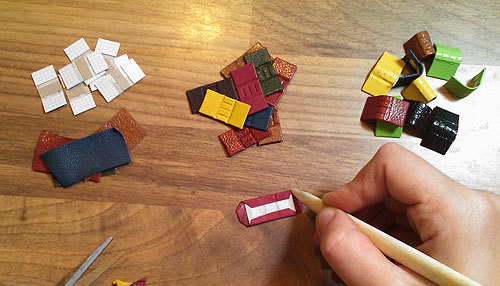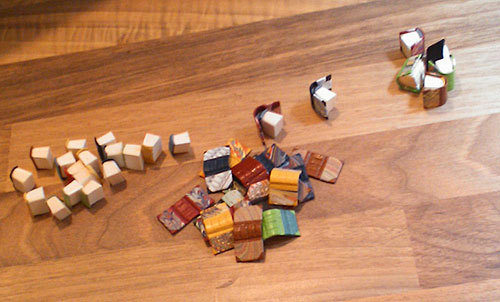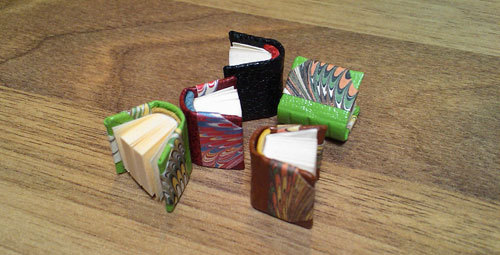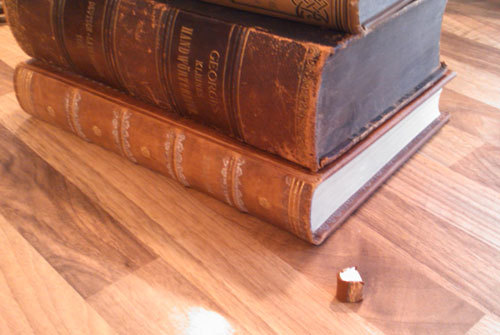When You Shake Laminated Paper And It Does The Thing
when you shake laminated paper and it does the thing
More Posts from Accioleyline and Others

Blue Sargent from prickly cupcake to A+BAMF in 3 simple steps. Not that they weren’t the same things to begin with.
he was a king.
this was the year he was going to die.
may or may not have spent my entire sunday finding obscure indie movies to steal clips from to make this video. idk, you can’t prove anything.

dkm but blue sargent is kind of hot??
of course it doesn’t really say anywhere in the book…but y’know.









“So they drove in silence to get Adam’s things, and when they left the trailer park for the last time, his mother watching from behind the kitchen window, Adam didn’t look back.”
The Raven Boys - Chapter 28.
Story by Maggie Stiefvater.
Art by me.
Have you ever wondered where books come from?
Well then, let me show you, because that’s what I do for a living.
Right now, it’s this time of the year, and the little ones have just freshly hatched:

You’ll notice they’re still blind and naked when they hatch. So I make them little coats to keep them warm during their first winter:

See how they happily line up to put them on:

See? Better. Now they’re ready to go and explore the world.

And if they make it through the winter and we take good care of them, they will grow up to be strong and wise like their older fellows:

So, in case you were ever wondering, now you know.
We might have misunderstood Hogwarts Houses for years
I have a theory that the valued quality of each of the four Houses isn’t really about the personality of its students.
The valued quality of each of the four Houses has to do with how they perceive magic.
Stick with me a second: Hogwarts is a school to study magic. Magic as Hogwarts teaches it can be seen as many things: a natural talent, a gift, a weapon, etc.
So how you believe magic should be used will both reflect your personality and change how you handle that power.
“Their daring, nerve, and chivalry set Gryffindors apart,” Gryffindors perceive magic as a weapon. Gryffindors tend to excel in aggressive forms of magic, like offensive and defensive spells, and they are good at dueling. But a true Gryffindor knows that the power is a responsibility, and so they must always use their powers to stand up for what’s right. They are the sword of the righteous, which makes them as good at Defense Against the Dark Arts as they are at combat magic.
Hufflepuffs believe that magic is a gift and that the best gifts are to be given away. Hufflepuffs, “loyal and just,” would naturally abhor the idea of jealously guarding magic or using it to hurt someone else. So Hufflepuffs share their magic to benefit of Muggles, like the Fat Friar, to protect the overlooked, like Newt Scamander with his creatures, or to oppose those who would use magic to torment and bully, like the Hufflepuffs who stood with the DA and the battle of Hogwarts.
Slytherins are the opposite: they believe their magic is a treasure that they have been entrusted to protect. The Slytherin fascination with purity, with advantage, with cunning and secrecy–all of which were perverted by the Death Eaters–comes from the idea that people with magic in their veins have been given something special that it is their duty to protect at all costs. And perhaps they aren’t entirely wrong: power in the wrong hands can be dangerous. And power interfering at will with Muggle affairs is a gross presumption that could turn the course of history. Though the series shows some of the worst that Slytherin can be, “evil,” is not a natural Slytherin tendency. “Cautious,” is.
Ravenclaws believe that magic is an art form, one that is beautiful and should be appreciated and studied for its own sake. If “wit beyond measure is man’s greatest treasure,” then asking what magic is for is useless. It’s more important to immerse oneself in magic for its own sake. Ravenclaws push the boundaries of magic to see if they can, hence Hermione’s spell experiment on the DA coins being dubbed a Ravenclaw quality, but like Luna Lovegood in the pursuit of extraordinary creatures: they can also be content to plumb the depths of what already exists.
So while you can see where personalities will overlap over Houses, perhaps in Sorting we should be asking ourselves less what we think we are and more what we think we believe.
-
 queenofperv reblogged this · 1 month ago
queenofperv reblogged this · 1 month ago -
 yeetstreet reblogged this · 2 months ago
yeetstreet reblogged this · 2 months ago -
 existentialistincrisis liked this · 2 months ago
existentialistincrisis liked this · 2 months ago -
 misverstand liked this · 2 months ago
misverstand liked this · 2 months ago -
 hotdogwater6 liked this · 2 months ago
hotdogwater6 liked this · 2 months ago -
 soulcatcher1214 reblogged this · 2 months ago
soulcatcher1214 reblogged this · 2 months ago -
 soulcatcher1214 liked this · 2 months ago
soulcatcher1214 liked this · 2 months ago -
 greenrain12 reblogged this · 2 months ago
greenrain12 reblogged this · 2 months ago -
 arealpersonprobably reblogged this · 2 months ago
arealpersonprobably reblogged this · 2 months ago -
 arealpersonprobably liked this · 2 months ago
arealpersonprobably liked this · 2 months ago -
 lyokzi reblogged this · 2 months ago
lyokzi reblogged this · 2 months ago -
 lyokzi liked this · 2 months ago
lyokzi liked this · 2 months ago -
 chemkitt reblogged this · 2 months ago
chemkitt reblogged this · 2 months ago -
 chemkitt liked this · 2 months ago
chemkitt liked this · 2 months ago -
 foxgopher reblogged this · 2 months ago
foxgopher reblogged this · 2 months ago -
 necro-om-nom-nomicon reblogged this · 2 months ago
necro-om-nom-nomicon reblogged this · 2 months ago -
 breadbduck liked this · 2 months ago
breadbduck liked this · 2 months ago -
 madaras-tits liked this · 2 months ago
madaras-tits liked this · 2 months ago -
 abattre reblogged this · 2 months ago
abattre reblogged this · 2 months ago -
 abattre liked this · 3 months ago
abattre liked this · 3 months ago -
 asterisx reblogged this · 3 months ago
asterisx reblogged this · 3 months ago -
 noreasonofliving liked this · 3 months ago
noreasonofliving liked this · 3 months ago -
 daengeli liked this · 3 months ago
daengeli liked this · 3 months ago -
 black-water-simping-ships reblogged this · 4 months ago
black-water-simping-ships reblogged this · 4 months ago -
 cyanideespresso reblogged this · 4 months ago
cyanideespresso reblogged this · 4 months ago -
 laoruna reblogged this · 4 months ago
laoruna reblogged this · 4 months ago -
 laoruna liked this · 4 months ago
laoruna liked this · 4 months ago -
 k9ok reblogged this · 4 months ago
k9ok reblogged this · 4 months ago -
 k9ok liked this · 4 months ago
k9ok liked this · 4 months ago -
 nominalparasite liked this · 5 months ago
nominalparasite liked this · 5 months ago -
 enochianghost reblogged this · 5 months ago
enochianghost reblogged this · 5 months ago -
 cartoonghosts liked this · 5 months ago
cartoonghosts liked this · 5 months ago -
 theodist liked this · 5 months ago
theodist liked this · 5 months ago -
 annaz4p6t liked this · 6 months ago
annaz4p6t liked this · 6 months ago -
 annarm02d liked this · 6 months ago
annarm02d liked this · 6 months ago -
 annan2vba liked this · 6 months ago
annan2vba liked this · 6 months ago -
 unsuub liked this · 7 months ago
unsuub liked this · 7 months ago -
 melancholyu4ea reblogged this · 7 months ago
melancholyu4ea reblogged this · 7 months ago -
 toxick-e liked this · 7 months ago
toxick-e liked this · 7 months ago -
 furresquid reblogged this · 7 months ago
furresquid reblogged this · 7 months ago -
 furresquid liked this · 7 months ago
furresquid liked this · 7 months ago -
 metalmark-oasis liked this · 7 months ago
metalmark-oasis liked this · 7 months ago -
 frostycausedaniceage liked this · 7 months ago
frostycausedaniceage liked this · 7 months ago -
 redsediment liked this · 7 months ago
redsediment liked this · 7 months ago -
 humanteethmarksonhumanbone liked this · 7 months ago
humanteethmarksonhumanbone liked this · 7 months ago -
 depresseddm-thedndkind reblogged this · 7 months ago
depresseddm-thedndkind reblogged this · 7 months ago -
 a-simp-for-the-stars liked this · 7 months ago
a-simp-for-the-stars liked this · 7 months ago -
 melodyque liked this · 7 months ago
melodyque liked this · 7 months ago





